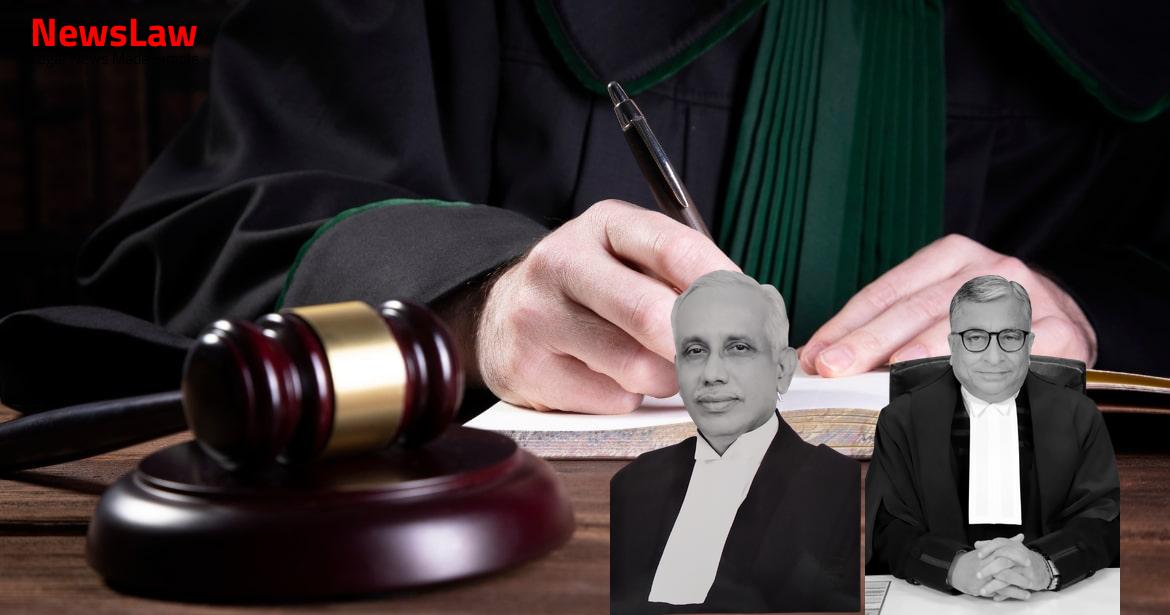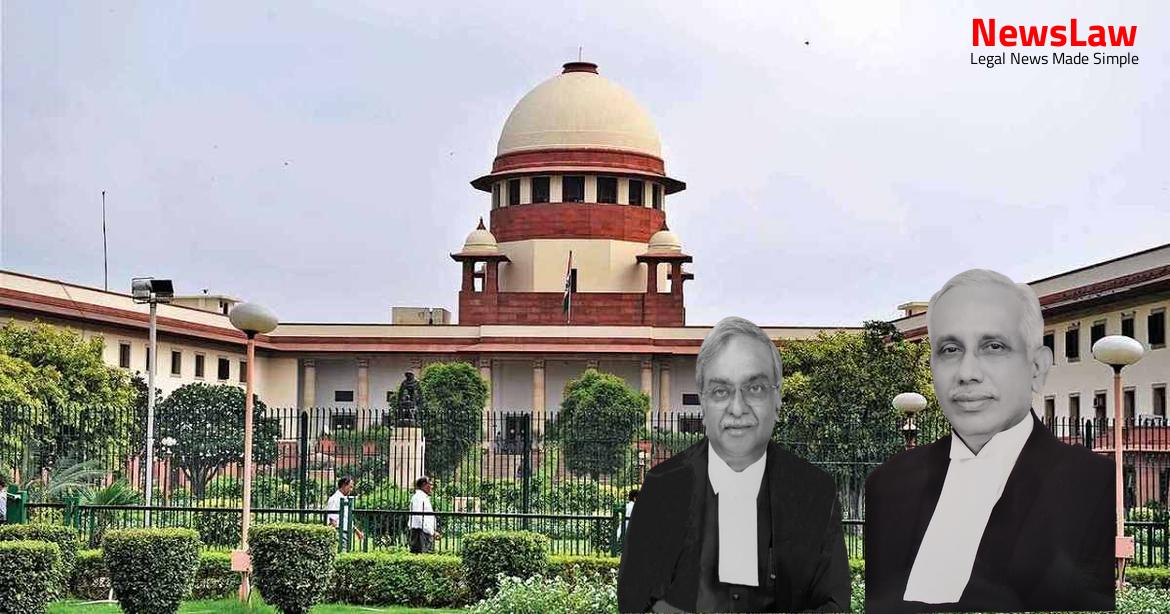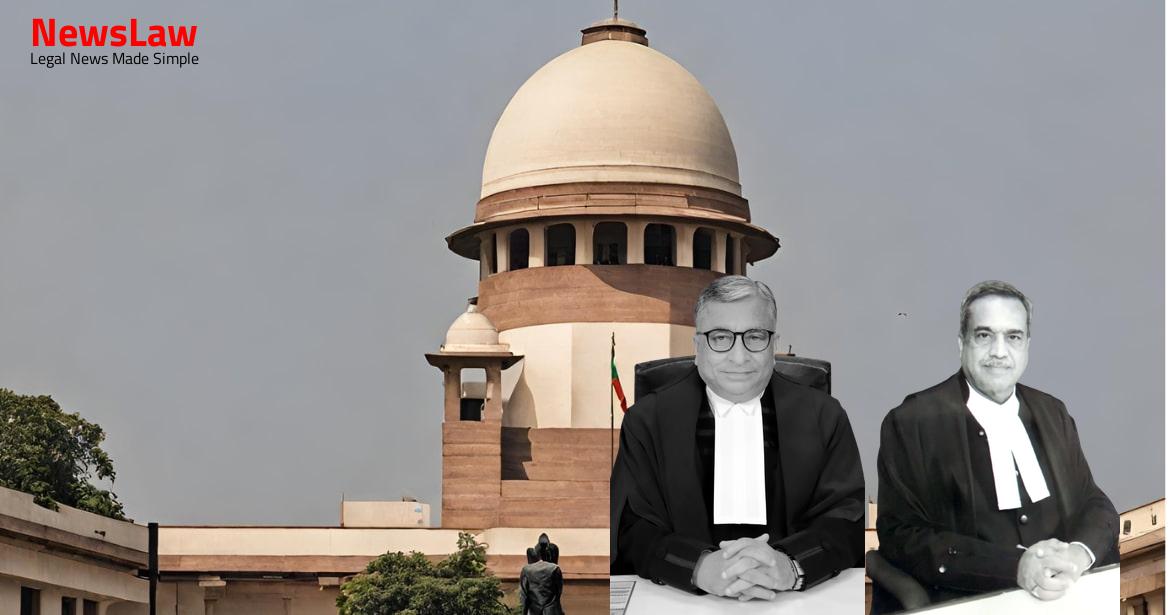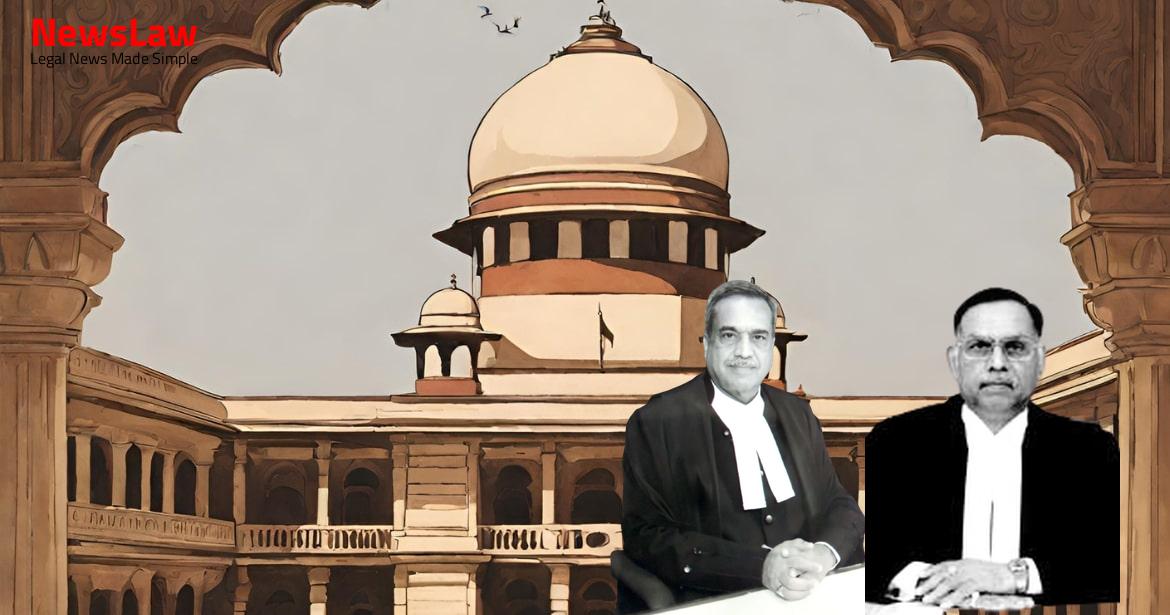Delve into the realm of legal intricacies surrounding the determination of ‘just compensation’ in motor accident claims. The court’s meticulous analysis in this case brings to the forefront considerations such as income calculation, dependency compensation, and the utilization of split multipliers. Understanding these legal principles is crucial in ensuring fair and equitable compensation for victims and their families in motor accident cases.
Facts
- The MACT awarded a total sum of Rs. 74,50,971/- towards compensation with interest @ 7.5 per cent per annum from the date of the claim petition till the date of realization.
- The amount awarded to the appellants includes various heads of claim such as transportation, loss of dependency, pain and sufferings, loss of love and affection, loss of consortium, loss of estate, funeral expenses, and others.
- Appellant no.4 was held not to be a legal representative of the deceased by the High Court.
- The High Court awarded a total compensation of Rs.48,39,728/-
- Monthly income of the deceased was fixed at Rs.40,000/- with one-third deducted for personal expenses
- Split multiplier of ‘7’ for post-retiral period and ‘4’ for pre-retirement period was applied for calculating dependency compensation
- Compensation of Rs.23,65,728/- was awarded for loss of dependency for pre-retiral period and Rs.22,40,000/- for post-retiral period
- Additional compensation awarded: Rs.1,00,000/- for loss of consortium, Rs.25,000/- for funeral expenses, and Rs.80,000/- for loss of love and affection
- High Court modified the MACT’s award by scaling down the compensation to the appellants
- Appellants included the wife, daughters, and mother-in-law of the deceased
- No dispute on the occurrence of the accident and liability of the respondent-insurer to pay compensation
- Deceased was 52 years old with an annual salary of Rs.8,87,148
- Split multiplier was applied by the High Court for calculating loss of dependency
Also Read: Analysis of High Court’s Dismissal of Second Appeal
Issue
- High Court precluded the mother-in-law of the deceased as his legal representative
- High Court applied a split multiplier
- Key considerations for determination: justification of preclusion, justification of split multiplier, calculation of compensation
Also Read: Land Sale Agreement Appeal: Legal Consideration of Additional Evidence
Arguments
- Learned counsel for the respondent argues that the deceased was 52 years old at the time of the accident.
- The argument made was that a split multiplier should not have been applied by the High Court based on relevant judgments.
- The deceased was a highly qualified individual with an M.Sc. M.Phil degree.
- Appellant no.4, the mother-in-law of the deceased, was not justified in being excluded as a legal representative.
- 1/4 of the deceased’s income should have been deducted for personal expenses.
- The High Court’s decision to consider a monthly salary of Rs.40,000 for the deceased and deducting 1/3 of the income towards personal expenses was supported.
- It was contended that appellant no.4 should be recognized as a legal representative for compensation determination.
- The deceased had a monthly salary of Rs.83,831 which was evident from records.
Also Read: Legal Analysis in Compensation Appeal Case
Analysis
- The Motor Vehicles Act, 1988 emphasizes the concept of ‘just and fair’ compensation.
- The Act aims to provide relief to victims or their families.
- Section 168 of the MV Act focuses on determining ‘just compensation’ based on fairness, reasonableness, and equitability.
- While such determination may not be precise, the court should strive for fairness.
- Section 166 of the MV Act allows for applications for compensation in accident cases, including by legal representatives of the deceased.
- The Act does not explicitly define the term ‘legal representative’.
- Rule of thumb developed to avoid uncertainties in outcomes of litigation.
- In Sarla Verma, High Court applied split multiplier method for calculation of compensation towards loss of dependency.
- Established income means income minus tax component.
- No addition to income for future prospects if deceased is over 50 years old.
- Deduction of one fourth of income for personal expenses of deceased considering number of dependents.
- Court clarified the term ‘legal representative’ in the context of claiming compensation.
- Court prescribed additions to income for different age groups of the deceased.
- Standardization of addition to income to avoid disparate methods of calculation.
- Rule of thumb to be applied in cases with no concrete evidence on rise in income due to future prospects.
- Court’s emphasis on fair and just compensation in motor accident claims.
- The term ‘legal representative’ in the context of the Motor Vehicles Act should have a broader interpretation beyond just the spouse, parents, and children of the deceased.
- The MV Act aims to provide monetary relief to victims or their families, necessitating a liberal and comprehensive interpretation of the term ‘legal representative’.
- The High Court’s adjustment of the number of dependents to 3 and the subsequent deduction towards personal expenses was upheld.
- The concept of ‘legal representative’ extends to individuals who may not be legal heirs but are entitled to represent the estate of the deceased.
- In case involving the death of an individual with dependents, compensation determination under Section 110-B of the Act should adhere to established legal principles.
- The calculation of compensation should consider the actual income of the deceased along with future prospects, following the guidance of precedent judgments like Sarla Verma and Pranay Sethi.
- Personal expenses deduction percentage should be determined based on the specific circumstances of each case and not based on a universal formula.
- The use of a split multiplier in the determination of compensation requires justification and should not be the routine course of action.
- Special circumstances or unique situations may warrant a departure from standard practices in compensation calculations, as recognized by the Court.
- The assessment of dependency and compensation in instances where the deceased was a voluntary worker, religious order member, or charitable society should be conducted diligently and in accordance with legal principles.
Decision
- Appellants entitled to compensation for loss of dependency, totaling Rs. 85,81,815
- Interest at 7.5% per annum from the date of the claim petition until realization
- Compensation under different heads increased by 10%
- Amount to be enhanced at the rate of 10% every three years
- Specific compensation amounts awarded for loss of estate, funeral expenses, spousal consortium, and parental consortium
- Respondent directed to deposit the awarded amount with accrued interest within eight weeks
- Judgment in Pranay Sethi referenced for determination of specific compensation amounts
- Enhancement of specific compensation amounts by 10% as per Pranay Sethi guidelines
- Conventional heads of loss of estate, loss of consortium, and funeral expenses estimated at Rs. 15,000, Rs. 40,000, and Rs.15,000 respectively
Case Title: N. JAYASREE Vs. CHOLAMANDALAM MS GENERAL INSURANCE COMPANY LTD. (2021 INSC 666)
Case Number: C.A. No.-006451-006451 / 2021



